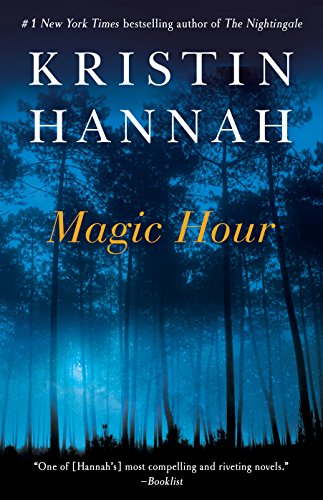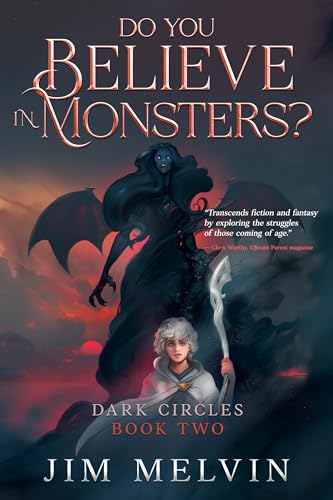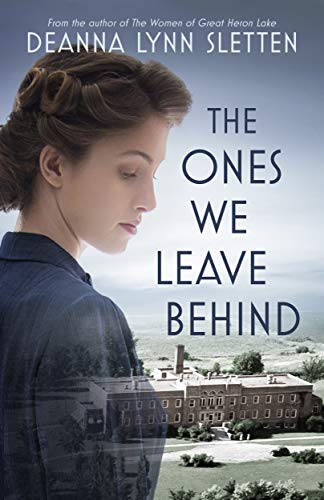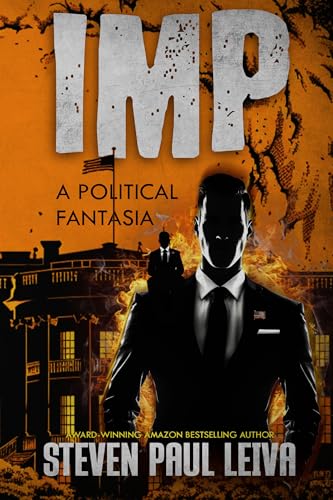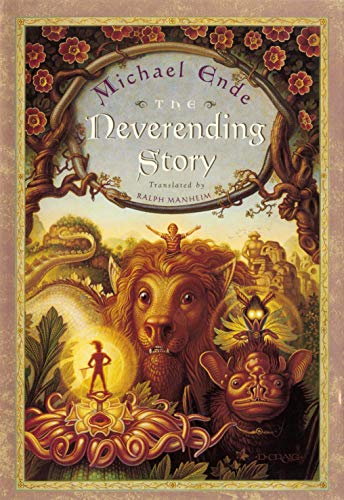in Literature & Fiction/Humor & Satire…
plus 61 rave reviews!
—The Oregonian
From the
author of The New York Times bestseller The Art of Racing in the Rain, comes this offbeat and moving novel about a fractured family dealing with unexpected challenges.
Don’t miss it while it’s 77% off the regular price!
How Evan Broke His Head and Other Secrets
by Garth Stein

in its Audible Audio Edition, Unabridged!
Evan had a hit single, but that was ten years ago. Thirty-one now, he’s drifting, playing in a local band and teaching middle-aged men to coax music from an electric guitar.
Beset at a young age with a life-threatening form of epilepsy, he’s kept his condition a secret. But his deepest secret is that he got his high school sweetheart pregnant. Then her conservative parents whisked her out of Seattle and out of Evan’s life.
Now, 14 years later, he experiences unplanned parenthood when he undertakes to raise the resentful teenage son he’s never known.
5-star praise from Amazon readers:
“…original, beautifully written, and deals with complicated subject matter…The prose is flawless, the imagery gripping…a very human story that will stay with you long after you read the last page.
an excerpt from
How Evan Broke His Head
and Other Secrets
by Garth Stein
1
Maybe a little reflection at this point in Evan’s life isn’t a bad thing. A gathering of mourners on a hill at a cemetery outside Walla Walla, a good five-hour drive from Seattle. A hot morning under an intense and brilliant sky. A dead girl in a box, suspended over a hole dug in the fertile soil. And Evan, watching from a distance like a father gazing through a nursery window at his newly born son, whose cries go unheard, untended, a helpless flail of tiny arms and legs and a little mouth that is open in silent scream, all of it safe from Evan’s unsanitary touch.
He hikes up the hill and takes his place among the circle of attendees. They are all the same: pale complexions, downcast eyes; a wash of chalky faces. There are fewer than he’d hoped. Twenty at most. He’d been warned that the burial service would be small, reserved for family and the closest of friends. Still, he’d envisioned a pack into which he could fade. After all, Mormons tend to stick together; they like to travel in groups.
He shifts uncomfortably. He has nowhere to hide. They are looking at him. Not directly, not staring. They are sneaking peeks, stealing sideways glances from behind flapping paper fans. They have no idea who he is; they don’t seem to care. A man speaks a few elegiac words that are swallowed by the breeze, tossed around and thrown over his shoulder for no one to hear.
Evan recognizes Tracy’s mother and father. He remembers her brother, Brad, one of those high school peers who fell somewhere between friend and acquaintance. Around them stand several of Tracy’s older siblings. He doesn’t know them, couldn’t recall their names if called upon to do so. Three or four or five brothers and sisters who were already grown and were never around when Tracy was a teenager; shards of a fractured family. And there is another important family member present: Tracy’s son.
Evan doesn’t recognize Dean, but he knows well enough who he is. A young man, fourteen-years-old, who, like Evan, stands out from the crowd, his dark hair hacked short, his face alert and defensive.
Dean looks up and meets Evan’s eyes. He looks at Evan without suspicion. But why would he suspect? What could he think, other than that Evan was another from Grandpa’s congregation, come late for the passing of Tracy Smith? But he is curious about something, for he doesn’t look away.
Tracy’s father places his arm around Dean’s shoulders, a gesture of comfort. Dean shifts slightly, stiffens a little bit, not dramatically, but enough to indicate that the gesture is not welcome. Enough so that Tracy’s father withdraws his arm.
And in an instant, Evan knows Dean. He knows what is going on. For Dean to have to witness his mother’s burial is bad enough, but for him to be so uncomfortable with his fellow grievers that he cannot grieve himself is crushing. Evan remembers his own grandfather’s funeral, watching the people cry. He felt so separate from them. They may have been friends with his grandfather for a long time, but they didn’t really know him. Not like Evan did. And so he couldn’t join them. He could only get through it and then grieve later, when he was alone, when it really mattered, as, he knows, Dean will grieve for his mother later. Until then, Dean stands, stoically, guarded, comforting no one, allowing no one to comfort him.
Evan’s mind drifts from the scene; the tentacles of his attention are caught by the breeze and gently sway toward the land around him. He hears the combines grinding away in the distance, whirling their razor-sharp blades as fast as they can, slicing at the dry stalks of winter wheat. It is mid-July and the harvest season is upon Walla Walla. He can feel the trucks, heavy on the highway; he can envision the people in town walking with a bounce to their step. He knows that this is what they wait for every year, to gather up the fruit of the earth and revel in its bounty. We are in the days of plenty. The fruits and vegetables and grains allow us to grow and prosper. All partake of the cornucopia. Save for Tracy Smith, whose body, now released from its earthly commitment, is being returned to the soil from which it sprang.
Evan snaps himself back into the frame; he attends to what is before him, the burial of his ex-girlfriend. He scrapes his teeth against his lower lip, scratching an itch that is not really there but somewhere in his brain. A seizure? Is one coming? No, no. The heat, the long drive. It’s fatigue, not a seizure. It had better not be a seizure. Not here. It would be too ironic for him to come down with a case of the falling sickness at Tracy’s funeral when he was trying to be as inconspicuous as possible. It would be almost funny to have twenty or more Mormons stand over his convulsing limbs, questioning in breathless voices: Who is he? What is he doing? Why is he here?
The service ends. Mourners amble back to their cars. Evan wonders what is next for him. He has seen the remains of Tracy properly attended to, and he has seen Dean, his child, now grown. What else is there to do but to return to his car and make the five- hour drive back to Seattle, take his place again in his life and wonder, as he always has, what was to become of Dean, the Boy Wonder, whom Evan has never met.
“You came. I’m shocked.”
Evan turns. Tracy’s brother, Brad, stands directly in front of him, not more than two feet away.
“You’re the one who—” Evan starts.
“Called you,” Brad finishes for him. “I know I did. My father would kill me if he knew. Don’t tell him.”
“I won’t.”
“You must feel guilty as hell,” Brad says, and as he says it, he sticks out a long finger and tries to jab Evan in the chest; Evan, quickness being one of his assets, takes a step back and out of range.
“Where’s Dean’s father?” Evan asks.
“I’m looking at him, stupid,” Brad replies.
“His stepfather,” Evan clarifies.
Brad laughs a quick snort. “How have you been, Evan?”
Evan shrugs. He was kind of hoping for a real answer.
“I heard that song of yours on the radio,” Brad continues. “About ten years ago.”
“Eleven.”
“I never could find the album, though. It must not have been that big.”
“It was big enough,” Evan says, an edge creeping into his voice.
“Really? Ever think of sharing any of the money you made with Tracy and Dean?”
But she was the one who abandoned him, remember. He had wanted to keep the baby. She was the one who left Seattle. She was the one who stole away in the middle of the night.
“I gotta go, man,” Brad says, “my diplomatic immunity is about to wear off.”
“What does that mean?”
“It means what it means. What do you think it means. I’ll see you, man. Good luck.”
Brad starts to leave.
“Give me your number,” Evan says quickly. “I’ll give you a call. I want to know what’s going on with you.”
“Nah,” Brad grins, “you know everything you need to know about me, Evan. I’m just like you, man, still fighting the good fight, you know?”
And he’s gone. All around, black-clad bodies murmur down the hill toward their cars.
Evan spies Tracy’s mother, Ellen, who is being consoled by another woman. His first impression is that she looks old. When Evan first met her, he was only fourteen and she—but a child herself when Tracy was born—was thirty-six. That was seventeen years ago. Evan is now thirty-one, Ellen fifty-three. And while the seventeen years has hardly changed Evan—he is still boyish and almost beardless— those same years have taken a different toll on Ellen Smith. Her face is etched with deep wrinkles. Her hair is dull brown with streaks of gray. Her blue eyes are pale.
“Hello, Mrs. Smith,” he calls out, approaching the women. Ellen’s friend excuses herself; Ellen looks toward Evan blankly. “It’s Evan,” he says. “Wallace.”
She doesn’t respond. Why would she? She hated him, back when he and Tracy were high school sweethearts. She and her thickly muscled husband, Frank. They both hated him. So what should he say to her now? Should he accuse her, and by accusing her make it clear that he feels the magnitude of her actions?
“Evan?” she asks, the mist clearing.
“I’m so sorry about Tracy.”
“Yes.”
“How is Dean?” he asks.
“Oh! Dean’s fine.”
Evan nods. “He looks good. Healthy.”
“He is,” Ellen smiles painfully. “What are you doing here?”
Evan shifts his weight from one foot to the other.
“I’d like to meet him,” he says.
Ellen looks quickly over her shoulder and down the hill to where people are climbing into their hot cars and driving off. A small group lingers near two black limousines. Frank is among them.
“I don’t believe that would be in his best interest. Not now, anyway.”
Evan cocks his head, unsure how to take her response. But it doesn’t matter. Before he can think about it long, his request is granted. Without warning, Dean is standing beside Ellen as if Evan had made a wish.
Dean. The Boy Wonder. So close now, so near, Evan feels his pulse quicken. What is it about Dean? His presence is almost intoxicating. His long, thin limbs draped in a black suit, his collar too large for his neck, his navy-blue tie knotted in an old-fashioned style quite beyond Evan’s sartorial expertise. So casually he hangs his arm around Ellen’s neck and rests his head on her shoulder, turning slightly toward Evan, his green eyes blaring out from their sockets, screaming at Evan that I am yours, yes, I am of you, yes I am.
“I’m hot, Grandma,” the young man complains.
“This is an old friend of your mother’s,” Ellen says deliberately, almost forcing herself to say it, pushing through her misgivings. “He’s come from Seattle to pay his respects.”
Dean unhooks his arm and offers his hand to Evan, which Evan takes, awed, in a way, by such self-control, such a display of courtesy in the face of such real grief.
“I’m terribly sorry about your mother,” Evan mumbles. He’s caught off guard. The new sensation of Dean’s hand in his own, the feelings rushing through his body, his nerves sending confused signals to his brain, that not only is he holding a hand, shaking a hand, but that it is a hand that belongs to his own flesh and blood, his own son.
“Thank you,” Dean responds evenly.
Evan doesn’t let go; he holds on and they stay like that, hand- in-hand, for several moments.
“We have to go, Evan,” Ellen breaks in. “The reception.”
Again she looks down toward Frank, who is in the parking lot staring up at them with piercing eyes. Evan has always been afraid of Frank Smith, a stocky man who wears his gray hair tightly shorn. His neck is thick with ropes of muscles that disappear into the collar of his shirt. His nose was flattened—Tracy once told Evan—from years of boxing while in the Marines. He has little hands that he clenches into fists of calloused and scarred flesh that appear to be made of clay. He speaks not like an average man, but like a little Moses, a man of God, a man who carries lightning in his arms and breathes the flames of Righteousness. He is not one to be challenged.
Evan releases Dean’s hand; Ellen nudges Dean to start down the hill, which he does. She does not immediately follow.
“Please don’t interfere,” she whispers at Evan. “Not after all this time.”
“But—”
“Please, Evan. I don’t know why you’re here. But please don’t interfere. Not after all this time.”
She turns and hurries after Dean, catches him, and then ushers him to the bottom of the hill. When they arrive, Frank directs them into one of the limousines, waves his arm to those still standing by, who obediently climb into their vehicles, and they all drive off, leaving Evan alone at Tracy’s grave.
Evan cannot move. He stands silent for several minutes, long after the last black car has left. What happened? He was so young when it all occurred. A sperm and an egg met, cells began to multiply and divide, and a child was born. But then what? What became of Evan? What became of his son? It’s all so murky, the circumstances so obscure that he doesn’t even remember how the story goes, or whose story he really believes. The truth belongs to he who tells it, so what good is it, anyway?
He starts back down the hill toward his car. His steps fall heavily against the hard-packed dirt path, and he raises his eyes to the surrounding land; the harvesting machines continue to work over the amber hills, threshing the wheat that has grown all spring, plowing an ever-widening swath of brown through the endless golden fields.
2
He pulls around the corner and parks. He’ll wait it out. He rolls down the windows, hoping to catch a breeze, reclines his seat, and closes his eyes. He’ll rest a while, then try again.
They usually spent part of the night together. He preferred going to her house, based on some youthful notion that it would be better to be caught by her father and die a quick death from a bullet wound than it would to be caught by his own parents and die a slow death by guilt. He also preferred her house because it was darker and thicker, almost warrenlike in its depth, and completely different from his parents’ sterile, brittle, strained home.
He sneaked out of his house when all was dark and walked fifteen minutes down unlit streets until he got to hers. He climbed in her window. They fooled around, fumbled with each other, quick sessions that were silent and largely unappreciated. Sex for sex’s sake. Sex because they could. They could, and they did. Fucking for sport, she told him. Funny.
Afterwards, Tracy indulged in contraband. A pint of Seagram’s perhaps. Some Marlboros. Maybe some pot. Evan never joined in. He knew what it was like to be out of control, and didn’t seek it out voluntarily. It would be many years before he would realize the medicinal qualities of marijuana and look back on that time as a missed opportunity. But there had been so many missed opportunities; what was one more?
She told him things. She told him what she wanted out of life. He learned that her dream house was one with a white picket fence and a green, green lawn. Her dream vocation was to be a writer. Her dream family was two boys, a girl, and a dog. Her dream man was—
I’m late.
She was a half a head shorter than he was. Her hair was long, curly, thick and ash-blond. She sometimes referred to herself as Cousin It.
How late?
Late enough.
A full year older, she was a senior, he a junior. She was one of the smartest people he knew. Intuitively smart, not like his father or his brother, who were book-smart. He once overheard a teacher call her “gifted,” and it surprised him—not that she would be gifted, but that she had never mentioned it to him.
Are you sure? Mr. Hill in Health said that some girls are too thin—girls who do gymnastics—
I took a test.
She told him once—her dream man was tall. He kept his hair cut short. It was black hair, very neat. She watched him shave every morning; his face was soft. His breath smelled like autumn leaves. He stood very straight, but not stiffly, and he wore dark suits. When he came home from work he opened the white gate and stepped sweetly up the flagstones to the stoop. He played with his children, fed the dog, drove the car, fixed the sink, and mowed the lawn. Evan was disappointed; her dream man wasn’t him. He wondered why she told him this, but he knew it was to keep him honest, to make sure he understood that his was a temporary harbor.
I’m pregnant.
They were an old couple at age seventeen, having dated since his freshman year. He loved Tracy. But he knew that he loved her more than she loved him.
Marry me.
Very funny, Evan. Marry me.
Evan, seriously—
Yes, seriously. There was a child involved now. They could raise a child together. And that would be some great kid. Some great family, a family of love, Evan’s music and Tracy’s gift and the baby. He would be a cool kid, asking questions about everything he saw, playing ball, learning to read, to climb trees. Evan suddenly felt so tremendously happy thinking about the future. They would live in a little house, they would raise their kids, and most of all, they would be happy. They would be so happy.
Evan, Tracy said forcefully, I got accepted to Reed.
Reed College. That’s where the gifted people go.
I got accepted.
Of course she did. They would be fools not to accept her.
That’s great.
A long pause.
I’m not going to college with a baby.
He studied her face at length and knew that she was right. She couldn’t go to college with a baby. Of course not. And how would it work, anyway? How could Evan make his end of it work? He would go to his parents, lay himself at their feet, confess his sins, more sins than they could possibly have guessed. They would be disappointed in him. They would feel let down by him again. His father would accuse him of having done it on purpose. He would say something like, You sure know how to stick it to us, don’t you, Evan? Or he would look out at Evan from under his dark brow and say, I suppose when you don’t have to clean up after yourself, you don’t care how big a mess you make, isn’t that right, Evan?
How could Evan disappoint them again? First the accident, a family-shattering event. Now this. A child at seventeen? How could he let them down again?
I have money, he said. I can give you money.
She didn’t answer.
It’s the best thing, right?
Again, she didn’t respond.
It’s the best thing, he said again, trying to convince himself that it was.
Is it what you want? she asked.
It wasn’t what he wanted, no. Not at all.
Yes.
Are you sure?
Yes, he said. I’ll pay for it. It’s what I want.
A laser burns his eyes. He brings a hand to his face and squints through his fingers. The reflection of the late afternoon sun off a car mirror. A burgundy minivan pulls out from a driveway. What time is it? His watch says five. That was some nap. He’s starving, but otherwise he feels good, refreshed.
He pulls around the corner and finds the street almost completely deserted. That’s good. That means the party’s over. He parks across the street and surveils the house for a few minutes. It’s quiet.
Finally, after what he thinks is long enough, and eager to get on with it, Evan pops open the door to his car and steps out into the newly energized air around Walla Walla.
Yes, that’s right. Something electric. About the situation and about the air. lonized. Tingly. For the instant Evan climbs out of his car, the front door of the Smith house opens and out comes Dean. He’s changed out of his black suit and into something a little less formal. He’s carrying an old push broom, and he begins to sweep the porch. Doing chores, even on the day of his mother’s funeral. Give the kid a break already. Still, it offers Evan the perfect opportunity.
Without thinking he swoops across the street and up the walk, hops the two steps onto the porch. He doesn’t want to think too much about it, about what he will say or how he will act. He just wants to do it. He has his feeling he can rely on. The electric feeling, the tingling, like something good is bound to come of it all. It quashes all of his natural inhibitions. It allows him to bound into a stranger’s life. Bound right in and change it all around.
“Dean,” Evan says, arriving on the porch, looking at the thin boy, fourteen, but boyish, his chopped-salad hair, his pimples, his magnetic eyes that are like emeralds, glowing across the porch at Evan. His small hands and pink fingers, chewed fingernails, gripping the old shop broom. Feeling comfortable in his old clothes, ripped jeans cut off just above the knee, washed out black T-shirt with a Nine Inch Nails logo on it, skateboard sneakers without socks, chicken legs, knobby knees, not really comfortable in his body yet. It occurs to Evan that when he was this boy’s age, he was having sex. He was putting his erect penis into a girl. But, oh, how he would try to prevent this boy from doing the same, if he were this boy’s father. Do what I say, not what I do. Be what I should have been, not what I am.
Dean looks up at Evan, waiting for an introduction of some kind. Any kind. And Evan starts to give it. But it never finds its way out of Evan’s mouth. God damn. This isn’t stage fright. This isn’t being overcome with emotions. This is a seizure.
Makes sense. The sense it makes is too clear now. A little baby seizure, a so-called simple partial, is flipping its way though the rail- way that is Evan’s brain, hitting switches in the wrong direction, firing synapses out of turn and, all-in-all, causing a veritable cacophony of electrical impulses that freezes Evan in his tracks, nails his tongue to the roof of his mouth, and prevents him from speaking to his son. His own son, now not more than ten feet away. “You’re a friend of my mother’s,” Dean says, puzzled by Evan’s lack of presentation.
Evan stands before Dean, shaking his head. The only thing he can do. Shake his head, frustrated, angry at the implacable little fucker of a seizure rendering him mute.
“I met you at my mom’s funeral.”
The crying shame of it all. Being where you want to be and not being able to take advantage of it. Evan holds his finger to his lips. Shhh. A gesture of quiet. Shhh. It will all pass. He holds his finger to his lips and hopes that Dean will understand. No questions now. No talking. It will pass. It’s a baby. A simple partial seizure. Really very elementary when you understand the pathology of it. It begins with a misfire.
“Why are you here?” Dean asks. Evan shakes his head. “What do you want?” Shhh. “Who are you?” No. “Grandma.”
No. Not grandma. No. It’s going. The electrical firestorm. The giddy feeling that Evan had attributed to the excitement of the moment had actually been an aura preceding a seizure. He should have known. He should have sensed it. So easy. A lab rat would have known. There will be no cheese for you!
“Grandma!”
Ellen appears. It’s almost gone. Bad timing.
“Go inside, Dean,” Ellen says sharply. She walks toward Evan. “What are you doing here?”
Finger to the lips. Shhh. It’s okay. Really. It isn’t contagious. It’s called epilepsy.
“Frank’s sleeping,” Ellen says. “You don’t have to worry about him waking up, he took a pill.”
That’s not it.
“How did you know?” she demands. “Was it Brad?”
Evan nods. Yes, yes, it was Brad. Brad told him everything.
She allows herself a burst of rueful laughter, which seems to expel some of the anger from her system and soften her demeanor a bit. She runs her hand up her forehead. It brushes against her stiff hair. It’s been styled. Not like when she was young and Evan would see her around Tracy’s house, back in high school. She smoked back then for one thing, and drank. White-trash Mormon. Now she’s reformed.
“He looks like you,” she says rather sadly.
The words are almost free, almost turned loose by the brain. Evan strains. He tries to speak. “Gaaa,” is all that comes out.
Ellen looks at Evan strangely, but she ignores his sound. She’s obviously wrestling with demons of her own. Her glance darts from Evan to the door and back.
“I think you—” She stops, squeezes her eyes closed, composes herself. “You haven’t come to take him away, have you?”
He shakes his head. No, no. Not that.
“Because I don’t know what I’d do if . . . I can’t lose him again.” Again? Lose him again? What does that mean?
She takes a deep breath and resigns herself to something. “Please don’t make trouble, Evan,” she says. “Tell him you’re a friend of Tracy’s, all right? Tell him you and she were very close. But—Please. Don’t take him away from me.”
She disappears into the house. A moment, then Dean emerges. “Who are you?” Dean asks.
Evan’s ready. It’s gone. He knows he can talk if he wants to. But his confidence is understandably low. He needs a few more seconds to get things together. He motions for Dean to follow. Dean does. Evan leads him to his car, a place where he feels safe, where they are both protected. He gestures for Dean to get in; he does. They sit for a moment.
“Who are you?” Dean asks again.
Evan turns to him. The tip of his tongue.
“I’m getting out if you don’t tell me who you are.” Evan closes his eyes. It’s right there. The tip of his tongue.
“I’m your father,” he says softly, amazed, himself, that anything came out.
A moment of shock flashes across Dean’s face. But only a moment. Then a half-smile.
“Where are we going?” he asks.
Where are they going? He hadn’t thought they were going anywhere.
Dean snaps on his seat belt and looks forward.
Evan, startled, mimics Dean’s movements. He starts the car. Evidently they’re going somewhere. He shifts into first and pulls away from the curb. But where? He laughs to himself. He doesn’t know.
3
He has half a mind to keep on driving. Just go, man. Drive all the way home to Seattle. Beyond Seattle. To Canada. To Japan. China. Get a rice paddy and live off the earth for the rest of his life. Raise his son to be a peaceable man, a leader of the free world, a respectable man whom people will want to follow.
They don’t speak as they leave town. Evan takes quick stock of his brain state and determines that he’s okay. Having a small seizure doesn’t mean a big one is coming, though it doesn’t entirely preclude the possibility. The good news is that a big one is always preceded by an aura—a bit of a warning sign—so he’d have time to pull over. It’s all about risk management.
Evan glances over at Dean and wonders what he’s thinking. What on earth could be going through this boy’s mind? He has just met his absentee father. Is there resentment? Hatred? Or just relief that he has a father at all and that he wasn’t spawned from some kind of weird laboratory experiment, a fatherless child, the cloned replica of FDR or something, merely DNA scraped from the polio-withered big toe of the great orator, injected into an unsuspecting egg and implanted into the waiting wall of his mother’s womb.
And still they don’t speak.
Evan doesn’t know where he’s going, so he heads west. He saw a sign for the Whitman Memorial on his way into town, and thinks that might be the ticket. He vaguely remembers the Whitmans from his ninth-grade history class. Missionary martyrs. Maybe if he takes Dean to the Whitman Memorial, they will find some kind of greater truth. Maybe they will both be better able to understand their unique situation.
They drive into the parking lot and Evan stops the car. He glances at Dean who seems unimpressed by the location. Like he was expecting a water-slide park or something. Evan opens his door. When he sees that Dean isn’t getting out with him, he sits back in his seat. This wasn’t a good idea, he thinks. Say something. Do something.
He’s still feeling sluggish from the seizure. He can talk okay. It’s just that the link between his brain and his tongue is a little scrambled. He may think to say one thing, but something else might come out of his mouth. It happens. Best to avoid dialogue at this point. He reaches over and touches the scruff of Dean’s neck. A fatherly gesture. Dean pulls away instinctively, but tries not to make it look obvious.
“I thought we could take a walk together,” Evan says. It works. That was just what he was thinking and then he said it.
Dean doesn’t move. He has no intention of taking a walk. “Got a cigarette?” he asks.
“You shouldn’t smoke,” Evan responds without thinking. Ah. Unconscious speech. Everything is in order.
“You’re a natural.”
“A natural what?”
“A natural father.”
Evan nods. They sit silently for a minute, neither of them budging. And then Dean evidently decides something.
“Okay,” he says with a snort. “I’ll play.”
He climbs out of the car and walks toward the park entrance. Evan follows. He pays their admission and they enter the Visitor Center, a dark room boasting intricate dioramas under plastic domes, vast wall hangings detailing the history of Marcus and Narcissa Whitman and their tribe of Presbyterian missionaries, and a massive HVAC system blasting visitors with about a million BTUs of frigid air.
Evan is amazed at how easy it all is. They stroll through the exhibit at a leisurely pace, pausing at each display to read the information cards. They take their cues from each other silently, exchanging glances, moving when the other moves, pausing when the other pauses.
They learn things together. Things like that the Whitmans arrived at this very site in 1836 and built their mission. That they made friends with the Indians in the area. That they called for more missionaries. That they converted the Indians, and that the Indians took to conversion for a time, until the measles nearly killed them off. When the Whitmans’ God failed to end the plague, the Indians decided enough was enough and massacred all the missionaries, including poor Narcissa Whitman, who was with child.
“Know your audience,” Evan says. “With some Indians it’s put up or shut up.”
“Huh,” Dean says, with a hint of irony. “Interesting.”
They continue their game out the rear door of the building and along the path that leads to the hill atop which the Whitman Memorial obelisk stands. Silently, easily, they hike the steep hill together, reaching the summit as if it is some symbolic hurdle they have vaulted together. The light from the sun is golden. The shadows of the wheat are long, and large-winged black birds hover over the fields, searching for prey. Evan feels that he has chosen a magical moment to reunite with his son. He feels the energy of the spirits around him.
“This hill is where the Whitman missionaries were killed,” Evan says. “No,” Dean scoffs, “actually, this hill is where the memoria They thought it would look nicer if they put the memorial on a hill. The missionaries were killed down there.”
He points to a small pond to the southwest.
“You’ve been here before?” Evan asks.
“Yeah. My mom used to bring me.”
My mom . . .
Suddenly the magic is lost. Suddenly Evan feels like he’s in over his head. They’re playing father-and-son like they’ve done it before. They’re playing make-believe. But none of it is true. The truth is that they are total strangers with no shared experiences, no mutual references, and only one thing in common—Tracy—and she’s dead.
He knows he’s supposed to say things, but he doesn’t know what. Desperately, he looks out to the land, hoping for something to divert Dean’s attention. He could continue his conversational evasion, create more distractions, talk about the birds, for instance—hawks, or whatever they are—he could ask Dean what he thinks they’re eating—shrews? gophers? voles?
“Okay,” Dean says, finally. “We’re here. Let’s hear it.”
“Well, uh . . .” Evan stumbles. He tacks on a chuckle. “Boy, this is awkward.”
Dean refuses to acknowledge the awkwardness of it.
“Yeah?” he asks dispassionately. “You said you wanted to talk to me. So talk.”
“Well, let’s see. I’m not sure how to start,” Evan admits.
“Are you kidding?” Dean laughs bitterly. “I’ll tell you how to start. Start by telling me you love me. Tell me you missed me all these years. Tell me it’s good to see me, that I look just like my mother. Give me a hug and tell me it’s good to hold me. Come on, Dad. You know the routine. You’ve seen it on TV. You want to try this again in a couple of days? You could watch some Oprah tapes, study up. She does this kind of thing all the time. You’ll pick it up fast.”
Evan is rattled by this speech. It sounds remarkably practiced, like Dean’s been waiting for this very moment his entire life, rehearsing in front of a mirror for the day he will see his father for the first time.
“That’s not what I—” he starts. That’s not what he . . . what?
That’s not what he wants to say? That’s not true. It is what he wants to say. It’s not what he expected Dean to act like? What did he expect? He must have expected something. After all, he drove all the way across the state for this very moment. It certainly would have been easier to not show up at Tracy’s funeral, avoid this scene entirely, treat it like a surgeon might treat a bullet that is lodged next to the heart. Leave it alone. But on some level he knows the simple ineluctability of it: this trip includes this conversation. At some point he had to have acknowledged the truth to himself. So why, then, is he unprepared for it?
“I want to start by apologizing,” he says.
“Apologizing? For what?”
For all of it. For everything since the beginning of time.
“For everything.”
“For everything,” Dean repeats. “You’re sorry for everything.”
“I am.”
“You didn’t mean any harm?”
No, but—it occurs to him that he and Dean are talking about two different things. Evan’s sorry that Tracy ran off; Dean thinks he’s sorry because he ran off. What does Dean actually know? What did Tracy tell him? What does he think?
“Okay, Dad,” Dean says. “You’re sorry. Sure. I’ll buy that. Apology accepted. You’re forgiven. Water under the bridge. You’re free and clear. Feel better?”
No. He doesn’t want to be forgiven. He’s sorry that it happened; he’s not sorry that he did something wrong.
“So if that’s all you came for,” Dean continues, “maybe you should take me home. I mean, I understand that when my mom died you probably figured I needed a parent figure, so you felt some kind of obligation to come here, but I’m okay, really. I’ll be fine. Don’t worry yourself.”
“But I want to—”
“Well then you should have a long time ago, right?”
Evan doesn’t answer. But I want to explain—
“Then you should have a long time ago, right, Dad?”
“I wish you’d stop calling me that. My name is Evan.”
“Okay, Evan, where have you been all my life?”
Evan shakes his head.These are questions that can’t be answered so easily.
“Naaaaaa!” Dean makes the sound of a game-show horn blaring. “Sorry, Evan, that’s not a good enough answer! But we have some nice consolation prizes so you won’t go home empty-handed.”
Dean turns to go.
“I know I deserve all of this,” Evan says as Dean walks away. Dean suddenly stops.
“All of what?”
“Everything. Your anger. Your frustration.”
“My anger? No, Evan, wrong again. You know what you deserve? You deserve to be locked in a room with Frank, that’s what you deserve. Frank would teach you a thing or two about forgiveness. I’d pay money to see that.”
“I’m sorry,” Evan says. “I wish I had time to explain it all, to make you see . . .”
“Great.”
“I wish I could tell you all the things I know. I’m sorry.”
“Big deal!” Dean shouts, his face tight, shaking with rage. “You’re sorry. Big deal! I think it’s real nice that you came to see me. You brought me to this nice scenic place, we said hello. You got some things off your chest. You got to apologize to me. I accepted your apology. And maybe all this made you feel better, Evan. But you know how much it means to me?”
Evan doesn’t answer.
“It means exactly dick shit.” Dean stalks away.
By the time Evan reaches the bottom of the hill, he feels like there’s an emergency. His brain is firing like crazy. He’d had that seizure earlier, on the porch. A little one, but a seizure nonetheless. And now. A space oddity. Strange sounds in his head, strange feel- ings. He doesn’t like it. He needs some pot.
Dean is in the car already, in the passenger seat, staring straight ahead. Evan opens the driver’s side door.
“I need to go to the men’s room, then I’ll take you home,” he says. He feels like his words are slurring. A telltale sign. Tongue thickness is always a precursor.
He grabs his bag and closes the door. The restroom is in the main building, but, thankfully, it’s not really inside. The door is on an outer wall. Evan goes in. It’s a park bathroom. Cinder block walls, electric hand-dryers. Evan stuffs himself into a stall. He sits. He takes out his pipe—the one-hitter, designed for times like this—and his weed. At this point there’s a certain urgency to it all. He feels things that he doesn’t want to feel. Twitches. He’s having trouble swallowing. His tongue won’t move on its own. He’s got a big one coming. If only he’s in time.
He smokes. Immediately he feels it. Smoke. Hot, sweet-tasting, it creeps down his throat like the fingers of some insidious monster, thin, wispy tendrils that reach into his chest, a forked tongue licking inside his bronchial tubes, depositing its medicine deep into the recesses of his lungs.
He feels the relief. The grip loosens. In a minute there is time. He takes another hit. Much better. He feels glazed now. Protected from the seizure by a coating of hard sugar.
He hears the door to the bathroom open, close. Shit. Busted by the park ranger. It must reek like pot in here. He scrambles to stow his pot and pipe. He flushes the toilet, like anyone would believe he was just going to the bathroom. He opens the stall door. It’s not a ranger. It’s Dean.
“Dean, I—” Dean turns to go.
“Dean. I use it as medicine.”
Dean stops and turns, his face blank. “Right,” he says. “Me, too.”
He leaves.
Evan gathers his bag, flushes again. Like it matters. Like any of the details matter.
* * *
They drive through town in silence. Evan isn’t thrilled that he got busted by Dean for smoking pot, but it’s better than the other scenario. If Evan had been too late to stave off the seizure and Dean had found him crammed into a stall, his shoes sticking out under the door, jerking and dancing to a rhythm that only Evan could hear, what would Dean have said? Would he have called an ambulance, held Evan’s hand through it all? Doubtful. More likely, he would have been afraid of what he was seeing, unsure of what Evan was doing, wanting to keep as far away as possible.
And so Evan is stuck again. Hiding his horrible secret from the world. Trying to live a life without a sign around his neck that says kick me, i’m a cripple. Sneaking around in dark corners, taking the only drug that really helps him, the only drug that helps him without killing him, he affects the attitude of someone who smokes as a lifestyle choice: musicians and drugs were bedfellows thousands of years before Evan came along. But for Evan it isn’t a choice. It’s survival. It is who he is.
He stops his car across from Frank and Ellen’s house.
“Listen, Dean,” he says, “when I was seventeen, I got a girl pregnant and she had a baby—you—and I never saw you. It wasn’t my fault, Dean, but I can’t say I’m not guilty. And I—”
He looks over at Dean, who is sneering at him, and stops. It’s no use. He can’t stuff his life into a nutshell and make a child see. He can’t reverse the past: fourteen years of Dean going to the annual father-and-son picnic with his mother—he can’t change that. He can’t explain it away; he can’t mitigate it in any way: Dean grew up without a father, and it’s impossible for Evan to erase that reality while sitting on the sticky vinyl seats of his car, a car that is older than Dean himself.
“Are you done?” Dean asks after a moment.
“Yeah, I guess I’m done.”
“Good. Maybe we’ll see each other again some day. Like at your funeral. I’d like that. Be sure to put me on the invitation list.” He climbs out and walks around the front of the car. As he passes Evan, he calmly reaches out his hand and gives Evan the finger. The finger. Evan has to laugh. The kid just makes you want to smack him.
Dean walks across the street and up onto the front porch of Frank’s house. But instead of continuing into the house, Dean slows to a stop. Evan follows Dean’s eyes to the front door. It opens suddenly and Ellen flies out of the house. She rushes to Dean, turns him around and herds him off the porch. What the hell is going on?
Frantic, Ellen prods Dean down the walk toward the street. Evan rolls down his window.
“Take him,” she calls out in hushed hysteria. “Take him away, please!”
By now they’re crossing the street and Dean has pulled away from her. He stands in the middle of the road, looking at her with disbelief. She rushes to Evan’s car.
“You have to leave here,” she pleads. “Please!”
It is then, with Ellen practically pushing her way through Evan’s window, that Evan realizes something is terribly wrong. Her cheek is scarlet and swollen. She’s holding a damp washcloth to the corner of her mouth. The towel is dark, but he thinks he sees blood on it.
“What happened?” he asks. “Are you all right?”
She calms herself, musters her energies, looks Evan directly in the eyes.
“You have to take him away from here,” she says as steadily as she can. “Take him away, Evan. I’ll call you when you can bring him back. Please, just—”
Bang!
They both jump. Dean spins toward the sound. A door slamming violently, a house shaken. A bear wakened from its slumber. Frank.
He storms out of the house with a great roar, which might have been funny if it weren’t so fucking scary. He’s still wearing his suit. No tie. He is barefoot.
“Get your ass in this house!” he yells.
A dog down the street barks violently at Frank, charging and hurling itself against a chain link fence with a CHING-ing-ing! Bark, bark, shuffle, CHING-ing-ing!
Evan, Ellen, and Dean are all frozen. A living tableau. What has Evan gotten himself into? What’s going on?
There’s no time to wonder. Frank has been loosed, and he’s on his way, a human cannonball, a projectile ready to explode on impact. Evan doesn’t know what the story is, but there’s time for that later. Right now, he wants to take Ellen’s advice and get out. He looks at Dean, who still hasn’t moved though Frank is closing in, off the porch, onto the walk, fifteen yards at most and closing fast—
“Please!”
“Get in the car, Dean!” “Wha?—”
“Get in the fucking car!”
Dean hesitates.Ten yards from being smashed to oblivion.
“NOW!” Evan screams.
And this time Dean moves, bolts from his position on the broken yellow line, shoots around the car and into the passenger seat. Frank is at full speed, running at them. Ellen quickly backs away, and for a moment, Evan wonders what will happen to her. But he can’t worry about that now. He revs the engine and drops the clutch, leaving squealing tires and a cloud of acrid smoke in his wake.They fly down the idyllic residential street, posted speed limit twenty-five (the old Saab still can get off the line pretty good, Evan notes with a grimace), and away from some crazy scene. Dean twists himself around and looks out the rear window.
“We should go back.”
“She told me to get you out of there, Dean. She knows what she’s doing. She said she’d call.”
“But—”
“Sit down!”
Dean reluctantly resumes his seat, snaps on his seat belt. “Grandpa’s scary,” he says.
“To you and me both.”
* * *
They stop for gas about an hour out of Walla Walla. Dean has sucked himself into his shell. He isn’t Dean; he is a husk, a hollow casing. The real Dean is somewhere else, far, far away.
Evan gets himself a bottle of water; Dean doesn’t want anything. While he’s in the mini-mart, Evan takes out his cell phone and gets Ellen’s number from information.
“Hello?” she answers with false brightness.
“It’s Evan.”
“I said you could talk to him,” she says, dropping her voice to a whisper. “I said you—”
“What’s going on there, Mrs. Smith?”
“I said you could talk to him, not take him.”
“I thought you meant—”
“Frank was very angry.”
“Did he hit you? Is that what happened?”
“No, Evan.”
“Is he abusing you? Should I call the police?”
“No, Evan, don’t be so melodramatic. We had an argument and I bumped into the freezer door, if you can believe that. The door was open and I turned.”
She abruptly stops; a moment of silence; then she says cheerfully, “I’ll call you in a few days and we’ll get together.”
What? She’s either lost her mind or Frank has walked into the room. “What am I supposed to do with him?” Evan asks.
“Thank you so much for calling. I’ll be sure to pass along your thoughts to Frank, of course.”
“What am I supposed to do with him?”
“We’ll be fine. It’s difficult, yes, but we’ll get through. I’ll call you in a few days and we’ll get together for a nice lunch, okay? Okay, talk to you soon, Sally.”
She hangs up. Wonderful.
Evan could have anticipated almost all of this: seeing Dean, having Dean yell at him, even having a barefooted Frank chase him down the street. But bringing Dean home with him? No. Not in a million years.
He goes outside and climbs back into the hot car. Dean doesn’t acknowledge him; he stares out the window as they pull onto the road.
“Can you turn on the air conditioner?” Dean asks. “It’s on.”
“Can you turn it up?”
“It’s up.”
Dean closes his eyes and leans back in his seat.
“I wish my mom were here,” he says quietly to himself, his last words until they arrive in Seattle, almost four hours later.
… Continued…
Download the entire book now to continue reading on Kindle!
4.3 stars – 77 reviews!
Special Kindle Price: $2.09!
(reduced from $9.00 for limited time only)

